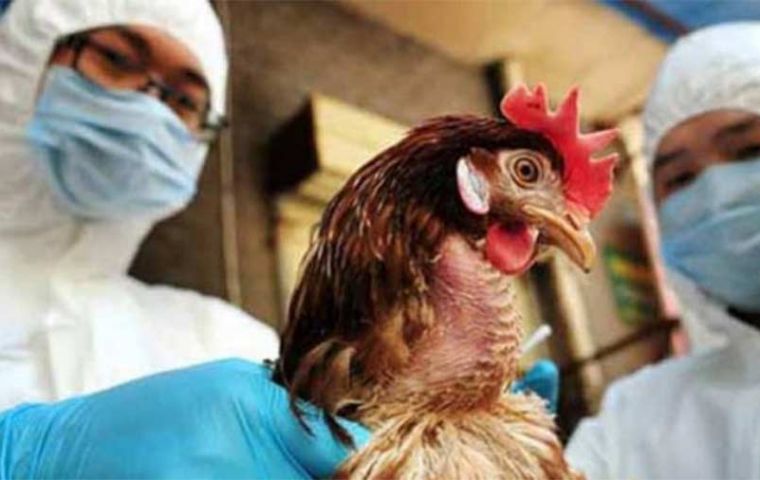
BUENOS AIRES, Feb 22 (NNN-MERCOPRESS) — Argentina’s health authorities have decided to up their biosecurity measures following the increase in the number of avian flu cases detected nationwide, particularly in provinces bordering Uruguay, but also in Córdoba and Salta.
After declaring a sanitary emergency a few days ago, the National Agrifood Health and Quality Service (Senasa) reinforced epidemiological surveillance controls. Thus, the agency is dealing with cases in backyards, carrying out surveys in the areas where positive cases were detected.
The agency continues to carry out raking and surveillance in Córdoba and Salta, in addition to preventive controls in the province of Entre Ríos on the border with Uruguay.
In Córdoba, the positive cases of avian influenza were in two wild ducks at Las Mojarras lagoon in the Department of General San Martín, and in backyard turkeys located in Alejo Ledesma. In addition to verifying the general condition of the animals, a perimeter was delimited to track and verify possible additional cases.
In Salta, Senasa shut down a backyard establishment where the positive case occurred. Other joint measures were also taken with the provincial Ministry of Production as well as with the National Institute of Agricultural Technology (INTA).
In addition to border controls in Entre Ríos, Senasa continues to carry out checkups in areas bordering Brazil, Bolivia, and Paraguay, it was reported.
Meanwhile, new cases of avian influenza (AI) H5 were confirmed in the province of Santa Fe, Senasa acknowledged. The cases were recorded in the town of Villa Cañás, in backyard chickens and turkeys found dead.
Last week, the Agriculture Secretariat declared a nationwide sanitary emergency after confirming the first case of avian influenza in the country in Andean geese in Laguna de Pozuelos, in the north of the province of Jujuy.
Senasa urged the productive sector to reinforce all biosecurity measures and requested the immediate notification of any possible detection of “nervous, digestive or respiratory clinical signs, decrease in egg production, water or feed consumption and high mortality in domestic or wild birds.”
In case of suspicion of clinical signs compatible with avian flu, Senasa must be notified. However, Senasa Vice President Rodolfo Acerbi insisted avian influenza does not represent a danger to the human population in Argentina.
The cases of avian flu detected in Argentina are caused by migratory wild birds arriving from the northern hemisphere’s winter, Senasa’s Health Director Ximena Melón explained.
These birds go down to eat where there is poultry for human consumption, which is where contagion occurs, Melón added. Hence, this poultry should be confined. The symptoms are easy to recognize: ruffled feathers and diarrhea.
Avian flu is a zoonosis, which can be transmitted to humans, but only when a sick bird is touched or handled without protection.
Melón also explained that avian flu cannot be transmitted through the consumption of eggs from sick birds. — NNN-MERCOPRESS





